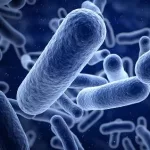Amritsar, Punjab – November 26, 2024
Former cricketer and Congress leader Navjot Singh Sidhu has clarified his earlier claims about the role of diet in his wife’s recovery from cancer, acknowledging that her treatment involved a comprehensive medical approach, including surgeries, chemotherapy, and targeted therapies. The clarification comes after significant criticism from oncologists across the country, who accused Sidhu of spreading misinformation.
Sidhu had recently drawn attention for stating that his wife, Navjot Kaur, who battled stage 4 breast cancer, had “starved cancer” by avoiding dairy and sugar while consuming an Ayurveda-inspired diet. In a widely circulated video, Sidhu attributed her recovery to consuming turmeric, neem, and other natural remedies, claiming these elements cured what he referred to as her “incurable” cancer.
The remarks were met with backlash from medical professionals, including experts from Tata Memorial Hospital and AIIMS, Delhi. They stressed that while dietary practices can complement cancer treatment, there is no scientific evidence to support claims that diet alone can cure cancer. Critics also pointed out Kaur’s previous reliance on chemotherapy and targeted therapies, which are proven and evidence-based medical treatments.
In a post on social media platform X (formerly Twitter), Sidhu provided a more detailed account of Kaur’s treatment, stating it combined conventional therapies with a strict diet plan inspired by ancient Indian Ayurveda and modern research, including Nobel laureate Yoshinori Ohsumi’s work on autophagy.
The Diet Plan
Sidhu shared an extensive dietary regimen followed by Kaur, emphasizing natural and unprocessed foods. The plan included:
- Liquids: Alkaline water, and concoctions of turmeric, neem leaves, lemon water, cardamom, basil, mint, ginger, and cinnamon.
- Juices: Ash gourd, orange, and Soursop leaves (Hanuman Phal) or Night jasmine (Harsingar).
- Solid Foods: A diet rich in fruits, vegetables, nuts, seeds, pulses, and legumes. Salads featuring ingredients like tomato, spinach, mushroom, and carrot were staples.
- Cooking Mediums: Cold-pressed coconut oil, mustard oil, or olive oil.
- Exclusions: No refined sugars, refined carbs, refined oils, milk products, or processed foods containing preservatives.
Additionally, Kaur consumed quinoa-based flatbreads, homemade almond and coconut milk, and practiced intermittent fasting, regular walking, and yoga.
Experts Respond
Oncologists have reiterated that while dietary changes can bolster overall health and complement medical treatments, they cannot replace scientifically proven cancer therapies. “Neem and turmeric may have potential health benefits, but there is no scientific evidence that they cure cancer,” said an oncologist from AIIMS, emphasizing the need for evidence-based treatment.
Medical professionals urged patients to view diet and alternative therapies as supportive measures rather than standalone cures, cautioning against the risks of misinformation.
Sidhu’s clarification has sparked a broader conversation about integrating holistic approaches with medical science in cancer care while ensuring that claims remain grounded in evidence.











